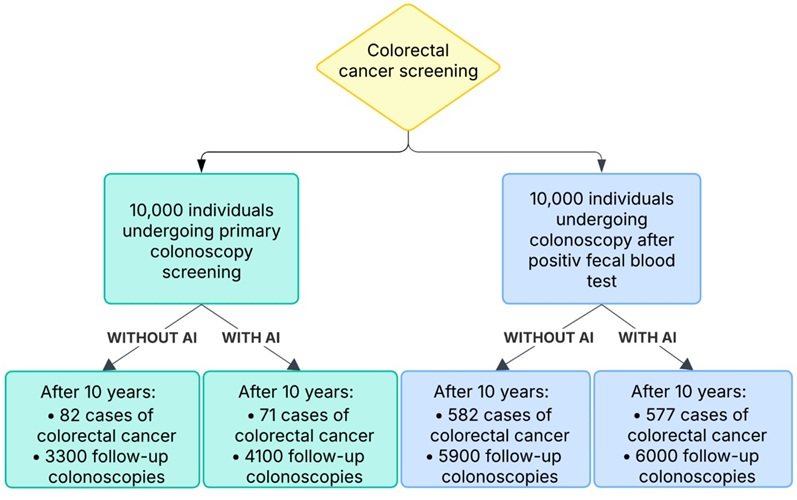Ground-Breaking Study Finds Plant-Derived Antiviral to Be Effective Against COVID-19
|
By HospiMedica International staff writers Posted on 04 Feb 2021 |

Illustration
Researchers have discovered a novel antiviral property of a drug that could have major implications in how future epidemics/pandemics - including COVID-19 - are managed.
The study by researchers from the University of Nottingham (Nottingham, UK) has shown that thapsigargin is a promising broad-spectrum antiviral, highly effective against SARS-CoV-2, a common cold coronavirus, respiratory syncytial virus (RSV) and the influenza A virus. Given that acute respiratory virus infections caused by different viruses are clinically indistinguishable on presentation, an effective broad-spectrum that can target different virus types at the same time could significantly improve clinical management. An antiviral of this type could potentially be made available for community use to control active infection and its spread.
In their ground-breaking study, the team of experts found that the plant-derived antiviral, at small doses, triggered a highly effective broad-spectrum host-centered antiviral innate immune response against three major types of human respiratory viruses – including COVID-19. The key features based on cell and animal studies, which make thapsigargin a promising antiviral are that it is effective against viral infection when used before or during active infection and is able to prevent a virus from making new copies of itself in cells for at least 48 hours after a single 30-minute exposure.
The study also found that thapsigargin was stable in acidic pH, as found in the stomach, and therefore can be taken orally, so could be administered without the need for injections or hospital admission. Thapsigargin was not found to be sensitive to virus resistance and proved at least several hundred-fold more effective than current antiviral options. The researchers found thapsigargin was just as effective in blocking combined infection with coronavirus and influenza A virus as in single-virus infection. Given that influenza virus, coronavirus and RSV are global pathogens of humans as well as animals, thapsigargin represents a lead compound in the development of a new generation of powerful host-centered antivirals (as opposed to conventional antiviral drugs that directly target viruses) that could even be adopted in a holistic "One Health" approach to control human and animal viruses.
“The current pandemic highlights the need for effective antivirals to treat active infections, as well as vaccines, to prevent the infection,” said Professor Kin-Chow Chang who led the study. “Given that future pandemics are likely to be of animal origin, where animal to human (zoonotic) and reverse zoonotic (human to animal) spread take place, a new generation of antivirals, such as thapsigargin, could play a key role in the control and treatment of important viral infections in both humans and animals.”
“Although more testing is clearly needed, current findings strongly indicate that thapsigargin and its derivatives are promising antiviral treatments against COVID-19 and influenza virus, and have the potential to defend us against the next Disease X pandemic,” added Professor Chang.
Related Links:
University of Nottingham
The study by researchers from the University of Nottingham (Nottingham, UK) has shown that thapsigargin is a promising broad-spectrum antiviral, highly effective against SARS-CoV-2, a common cold coronavirus, respiratory syncytial virus (RSV) and the influenza A virus. Given that acute respiratory virus infections caused by different viruses are clinically indistinguishable on presentation, an effective broad-spectrum that can target different virus types at the same time could significantly improve clinical management. An antiviral of this type could potentially be made available for community use to control active infection and its spread.
In their ground-breaking study, the team of experts found that the plant-derived antiviral, at small doses, triggered a highly effective broad-spectrum host-centered antiviral innate immune response against three major types of human respiratory viruses – including COVID-19. The key features based on cell and animal studies, which make thapsigargin a promising antiviral are that it is effective against viral infection when used before or during active infection and is able to prevent a virus from making new copies of itself in cells for at least 48 hours after a single 30-minute exposure.
The study also found that thapsigargin was stable in acidic pH, as found in the stomach, and therefore can be taken orally, so could be administered without the need for injections or hospital admission. Thapsigargin was not found to be sensitive to virus resistance and proved at least several hundred-fold more effective than current antiviral options. The researchers found thapsigargin was just as effective in blocking combined infection with coronavirus and influenza A virus as in single-virus infection. Given that influenza virus, coronavirus and RSV are global pathogens of humans as well as animals, thapsigargin represents a lead compound in the development of a new generation of powerful host-centered antivirals (as opposed to conventional antiviral drugs that directly target viruses) that could even be adopted in a holistic "One Health" approach to control human and animal viruses.
“The current pandemic highlights the need for effective antivirals to treat active infections, as well as vaccines, to prevent the infection,” said Professor Kin-Chow Chang who led the study. “Given that future pandemics are likely to be of animal origin, where animal to human (zoonotic) and reverse zoonotic (human to animal) spread take place, a new generation of antivirals, such as thapsigargin, could play a key role in the control and treatment of important viral infections in both humans and animals.”
“Although more testing is clearly needed, current findings strongly indicate that thapsigargin and its derivatives are promising antiviral treatments against COVID-19 and influenza virus, and have the potential to defend us against the next Disease X pandemic,” added Professor Chang.
Related Links:
University of Nottingham
Latest COVID-19 News
- Low-Cost System Detects SARS-CoV-2 Virus in Hospital Air Using High-Tech Bubbles
- World's First Inhalable COVID-19 Vaccine Approved in China
- COVID-19 Vaccine Patch Fights SARS-CoV-2 Variants Better than Needles
- Blood Viscosity Testing Can Predict Risk of Death in Hospitalized COVID-19 Patients
- ‘Covid Computer’ Uses AI to Detect COVID-19 from Chest CT Scans
- MRI Lung-Imaging Technique Shows Cause of Long-COVID Symptoms
- Chest CT Scans of COVID-19 Patients Could Help Distinguish Between SARS-CoV-2 Variants
- Specialized MRI Detects Lung Abnormalities in Non-Hospitalized Long COVID Patients
- AI Algorithm Identifies Hospitalized Patients at Highest Risk of Dying From COVID-19
- Sweat Sensor Detects Key Biomarkers That Provide Early Warning of COVID-19 and Flu
- Study Assesses Impact of COVID-19 on Ventilation/Perfusion Scintigraphy
- CT Imaging Study Finds Vaccination Reduces Risk of COVID-19 Associated Pulmonary Embolism
- Third Day in Hospital a ‘Tipping Point’ in Severity of COVID-19 Pneumonia
- Longer Interval Between COVID-19 Vaccines Generates Up to Nine Times as Many Antibodies
- AI Model for Monitoring COVID-19 Predicts Mortality Within First 30 Days of Admission
- AI Predicts COVID Prognosis at Near-Expert Level Based Off CT Scans
Channels
Artificial Intelligence
view channel
Innovative Risk Score Predicts Heart Attack or Stroke in Kidney Transplant Candidates
Heart researchers have utilized an innovative risk assessment score to accurately predict whether patients being evaluated for kidney transplants are at risk for future major cardiac events, such as a... Read more
AI Algorithm Detects Early-Stage Metabolic-Associated Steatotic Liver Disease Using EHRs
Liver disease, which is treatable when detected early, often goes unnoticed until it reaches advanced stages. Metabolic-associated steatotic liver disease (MASLD), the most prevalent form of liver disease,... Read moreCritical Care
view channel
AI Eye Scans Could Help Identify Heart Disease and Stroke Risk
New research has explored the advantages of utilizing artificial intelligence (AI) retinal imaging for screening cardiovascular diseases in general practice (GP) clinics and highlighted areas where improvements... Read more
Digital Heart Twin Improves Diagnosis and Treatment of Cardiac Arrhythmias
Millions of individuals around the globe suffer from cardiac arrhythmias. Traditionally, electrocardiography (ECG) has been used to detect premature ventricular contractions (PVCs), one of the most common... Read more
First-Of-Its-Kind AI-Powered Probability Scoring System Assesses Heart Failure with Preserved Ejection Fraction
Heart failure with preserved ejection fraction (HFpEF) is one of the most difficult types of heart failure to diagnose due to the intricate interaction between various clinical and echocardiographic factors.... Read moreSurgical Techniques
view channel
New Transcatheter Valve Found Safe and Effective for Treating Aortic Regurgitation
Aortic regurgitation is a condition in which the aortic valve does not close properly, allowing blood to flow backward into the left ventricle. This results in decreased blood flow from the heart to the... Read more
Minimally Invasive Valve Repair Reduces Hospitalizations in Severe Tricuspid Regurgitation Patients
The tricuspid valve is one of the four heart valves, responsible for regulating blood flow from the right atrium (the heart's upper-right chamber) to the right ventricle (the lower-right chamber).... Read morePatient Care
view channel
Portable Biosensor Platform to Reduce Hospital-Acquired Infections
Approximately 4 million patients in the European Union acquire healthcare-associated infections (HAIs) or nosocomial infections each year, with around 37,000 deaths directly resulting from these infections,... Read moreFirst-Of-Its-Kind Portable Germicidal Light Technology Disinfects High-Touch Clinical Surfaces in Seconds
Reducing healthcare-acquired infections (HAIs) remains a pressing issue within global healthcare systems. In the United States alone, 1.7 million patients contract HAIs annually, leading to approximately... Read more
Surgical Capacity Optimization Solution Helps Hospitals Boost OR Utilization
An innovative solution has the capability to transform surgical capacity utilization by targeting the root cause of surgical block time inefficiencies. Fujitsu Limited’s (Tokyo, Japan) Surgical Capacity... Read more
Game-Changing Innovation in Surgical Instrument Sterilization Significantly Improves OR Throughput
A groundbreaking innovation enables hospitals to significantly improve instrument processing time and throughput in operating rooms (ORs) and sterile processing departments. Turbett Surgical, Inc.... Read moreHealth IT
view channel
Printable Molecule-Selective Nanoparticles Enable Mass Production of Wearable Biosensors
The future of medicine is likely to focus on the personalization of healthcare—understanding exactly what an individual requires and delivering the appropriate combination of nutrients, metabolites, and... Read more
Smartwatches Could Detect Congestive Heart Failure
Diagnosing congestive heart failure (CHF) typically requires expensive and time-consuming imaging techniques like echocardiography, also known as cardiac ultrasound. Previously, detecting CHF by analyzing... Read morePoint of Care
view channel
Handheld, Sound-Based Diagnostic System Delivers Bedside Blood Test Results in An Hour
Patients who go to a doctor for a blood test often have to contend with a needle and syringe, followed by a long wait—sometimes hours or even days—for lab results. Scientists have been working hard to... Read more
Smartphone-Enabled, Paper-Based Quantitative Diagnostic Platform Transforms POC Testing
Point-of-care diagnostics are crucial for public health, offering rapid, on-site testing that enables prompt diagnosis and treatment. This is especially valuable in remote or underserved regions where... Read moreBusiness
view channel
Expanded Collaboration to Transform OR Technology Through AI and Automation
The expansion of an existing collaboration between three leading companies aims to develop artificial intelligence (AI)-driven solutions for smart operating rooms with sophisticated monitoring and automation.... Read more



















